Sharing my experience with post-birth control syndrome, trying to conceive and getting pregnant. Plus, my top tips to help you conceive post-birth control.
Let me preface by saying, this is my journey. Your body is incredibly unique and therefore your journey will be too. This isn’t medical advice. I’m simply sharing my journey and the steps I took to heal my body. I hope this post inspires you, encourages you to be your own health advocate and work with a professional to get the specific advice and care you need.
To give you some background, I took the birth control pill for 9 years. I originally went on birth control to help clear up my skin and help manage my heavy bleeding during my monthly period. At the time it felt like a no brainer. A magic pill, if you will! Flash forward 9 years, and I can honestly say I regret making the choice to go on birth control and stay on it for so long.
My Experience with Post-Birth Control Syndrome
I’ll start by saying the term “post-birth control syndrome” isn’t always well expected by the medical community. It’s a relatively new term that describes the symptoms of hormone imbalance that many women experience after stopping birth control. (If you’re unfamiliar with post-birth control syndrome, I highly recommend this post by Dr. Jolene Brighten.)
In 2017, I made the decision to go off birth control. I’d been with my long-term boyfriend (now husband for 7 years at the time and it felt like the right decision.) I had a gut feeling it would take me a while to get my body and hormones back on track after stopping the pill, and I was right!
I had disordered eating behaviors throughout high school and college. It truly was an obsession with a skewed definition of “health”. No matter what I studied or knew deep down, my mind would override my behaviors. I was determined to remain small and take up less space as a way to feel good about my body and accept myself. I was always borderline underweight for my height and very lean, meaning I had very little body fat. This together with the effects of the birth control pill created the perfect storm of post-birth control syndrome, hypothalamic amenorrhea, and PCOS.
I stopped birth control in the spring of 2017 and my period didn’t return for two years. At first, this didn’t seem like that big of a deal but the more I researched, I realized how big of a deal it actually was. I wanted nothing more to be a mom someday. I finally realized these things couldn’t happen without my period.
A few months later, I got engaged. This was a huge turning point for me and my health. It was like finally, something clicked. I realized how selfish I was being by not giving all of my energy on restoring my health. It wasn’t just about me anymore. Marrying my husband mean t it was about us. Our life together and the dreams we had for the future. I wanted to give my husband what he wanted, a family.
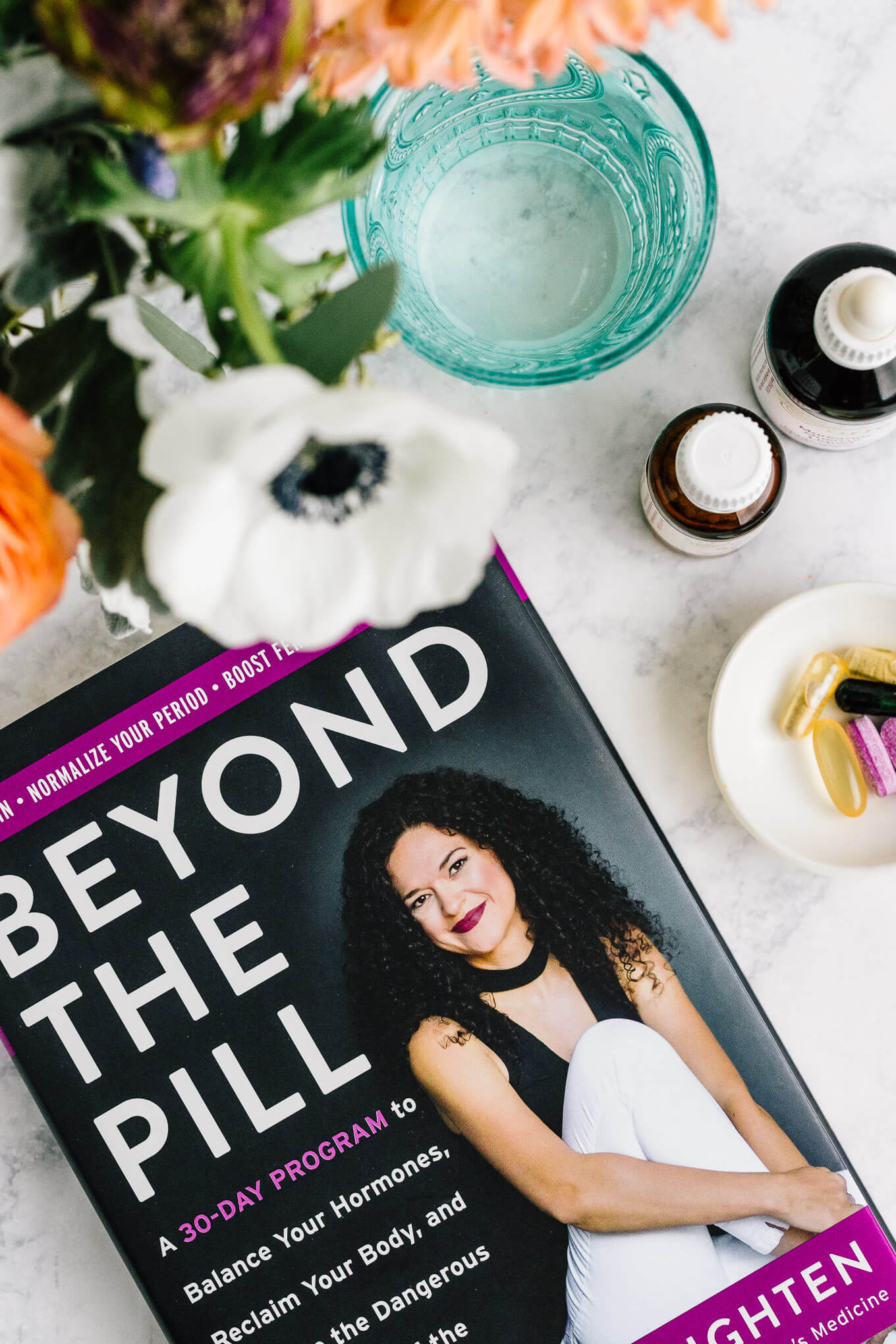
What I did to Restore My Period
This is when I honestly started putting in the work. I had lab test order from my OBGYN and I did a ton of research. When my OBGYN didn’t give me answers, I scoured the internet for people going through the same thing as me. Luckily, this topic was becoming less of a taboo topic and more naturopaths and holistic doctors were talking about it. I invested in numerous tests, including nutrient panels, hormones panels, and a stools test to get an in-depth look at what was going on with my body. It turns out I was depleted in most of my nutrients, despite eating a very nutrient-dense diet. My gut bacteria were slightly off and my hormones were all over the place.
DUTCH Hormones TEST
I used the DUTCH test to give me a very in-depth look at my hormones. I was able to pinpoint that the issues were most likely coming from nutrient deficiencies and adrenal insufficiency which was related to poor stress management. The DUTCH test was incredible but I will say, not many doctors or even holistic practitioners are familiar with the test yet. I know my OBGYN disregarded it and wanted to run tests of her own, which honestly didn’t give any insight into the root cause.
Nutrition and Lifestyle Changes
Over the year, I thought I had done everything I could. I had gained weight, slowed down my exercise, focused more on stress management, sleep and restoring my nutrients. During this time I can also say I found flexibility in my routine and freedom around food. I didn’t have to have rigidity to feel good. That being said, I still felt defeated. I felt as though I was doing everything right but I still wasn’t getting results.
It wasn’t until I found Dr. Jolene Brighten on Instagram and met with a holistic doctor, that I finally started making progress. My first big step in recovering was implementing what I learned from Dr. Jolene Brighten. She’s an incredible doctor who specialized in women’s health. Dr. Brighten came out with the book Beyond the Pill, I preordered it. Once I received it, the book became my bible. It was incredibly helpful in pinpointing possibly hormone problems and the solutions to fix it. I implemented new supplements, changed up my diet and put a greater emphasis on self-care.
I decided to present what I’d learned to my OBGYN and get may labs tested again. My nutrient levels were making progress as well as my hormones, not to mention I was just feeling better overall! But my OBGYN disregarded it. She diagnosed me with PCOS from ultrasound and told me my only option was birth control. After debating with her about why I thought the pill was the cause for this and my research on birth control, hypothalamic amenorrhea and PCOS, I realized I wasn’t getting anywhere. She was not open to new research and new ways of thinking.
Invested in a Holistic doctor
This is when I made the investment in a holistic doctor. It was 100% worth it! He spent an hour and a half with me on my first visit getting to know me, listening to my story, what I’d been researching and going over my labs. He quickly told me to not worry about the PCOS diagnosis and focus on restoring my period by getting my nutrient levels where they need to me and getting my hypothalamus working again. I started a new supplement regimen that included prenatal vitamin, plus other single nutrients, adrenal support supplement to help my body deal with stress, NAC for inflammation as well as a few others.
A few months later, I met with him feeling more energized and honestly better than I had in a long time. At this point, he prescribed me two herbal supplements, Marjorium and Ovaria Apis. Coincidence or not, I got my period back the next month. I was in disbelief! Was this really happening?
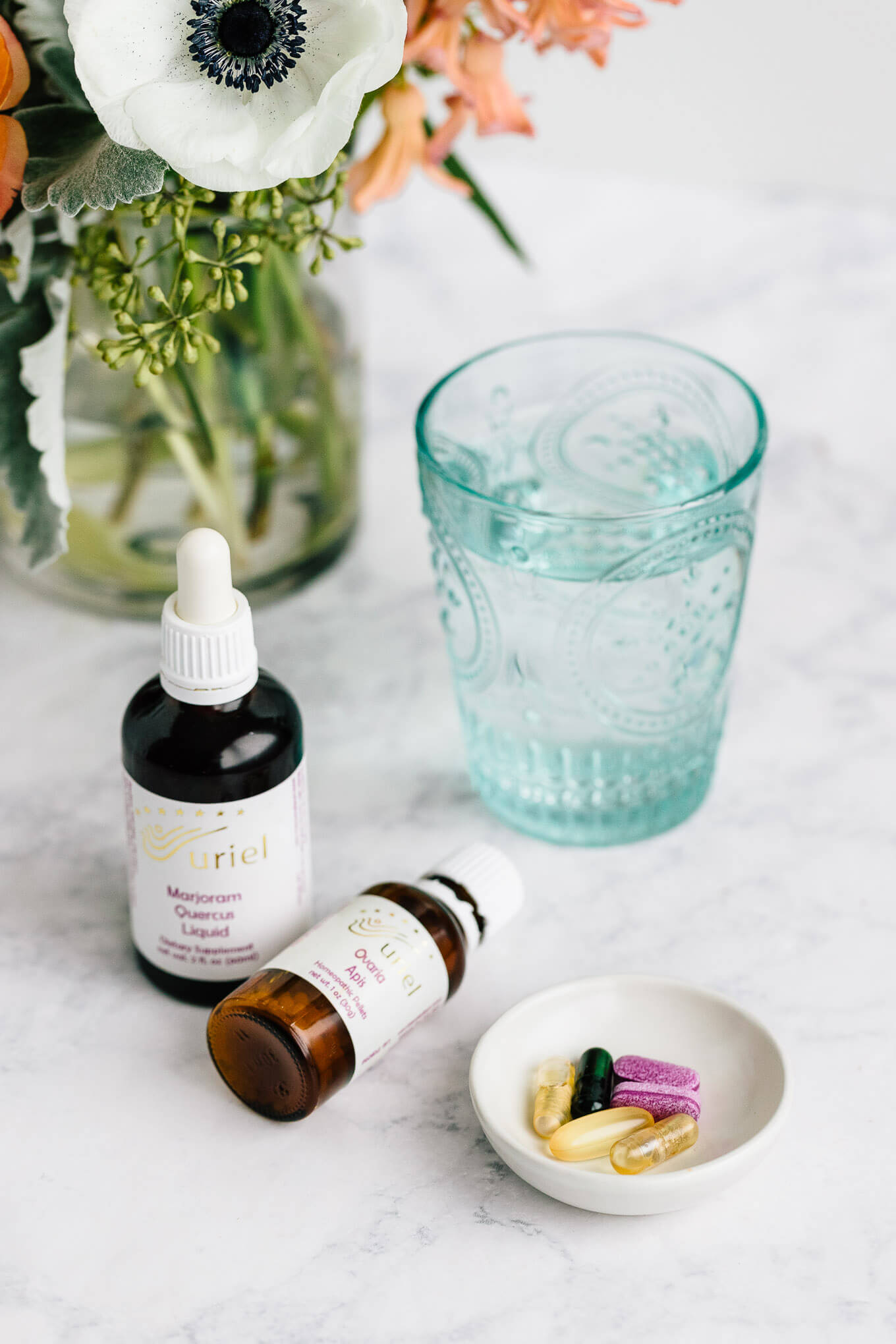
Trying to Conceive + Getting Pregnant
It’s 2019. At this point, I’m married. We knew we wanted a family but were very nervous about how long it would take given my history. I invested in the Ava Fertility Tracking Bracelet even though I knew it wasn’t accurate for irregular periods. I was convinced that knowing my data and learning how my body fluctuates throughout the cycle would be valuable information. It turns out I was right.
The data was fascinating. The next month came around and had another period. Based on the data I didn’t ovulate. I figured it might take me a little while for my body to get back into a natural rhythm. Having the data made me feel empowered. The next month, was July, we were traveling, I was under more stress trying to finish a fast approaching book deadline. I didn’t have a period that month. Looking back I can see that those factors could have played a role. Plus, if I truly had PCOS, I knew irregular periods were a common symptom.
August came and I had my period. Although it was so light and just a few days that I thought it was just spotting. However, I felt confident because I could use my Ava data to determine if it was a period based on my body temperature, heart rate, etc. Thirteen days later, I had cramping on and swollen lymph nodes on one side of my pelvis (which is common during ovulation). I was so confident I was ovulating. Sure enough, a few days later, my Ava bracelet confirmed that I did ovulate based on my rise in temperature and resting heart rate.
I’ll end this story by saying nine days later, six days before my anticipated period (I have a short cycle of about 24 days) I took a pregnancy test. Two-line appeared! I confirmed it with about 4 more tests throughout the week. I was indeed pregnant!
Gentle Reminder About Getting Pregnant
The story above is my journey with post-birth control syndrome and getting pregnant. Please remember that you are so beautifully unique and so is your journey. You may feel like you’re doing all the right things with no success. Be patient. Give it time. The best blessings in life come when you are putting in the work but least expect it.
That being said, there are a few tips (takeaways) from my journey that can apply to almost anyone trying to conceive post-birth control.
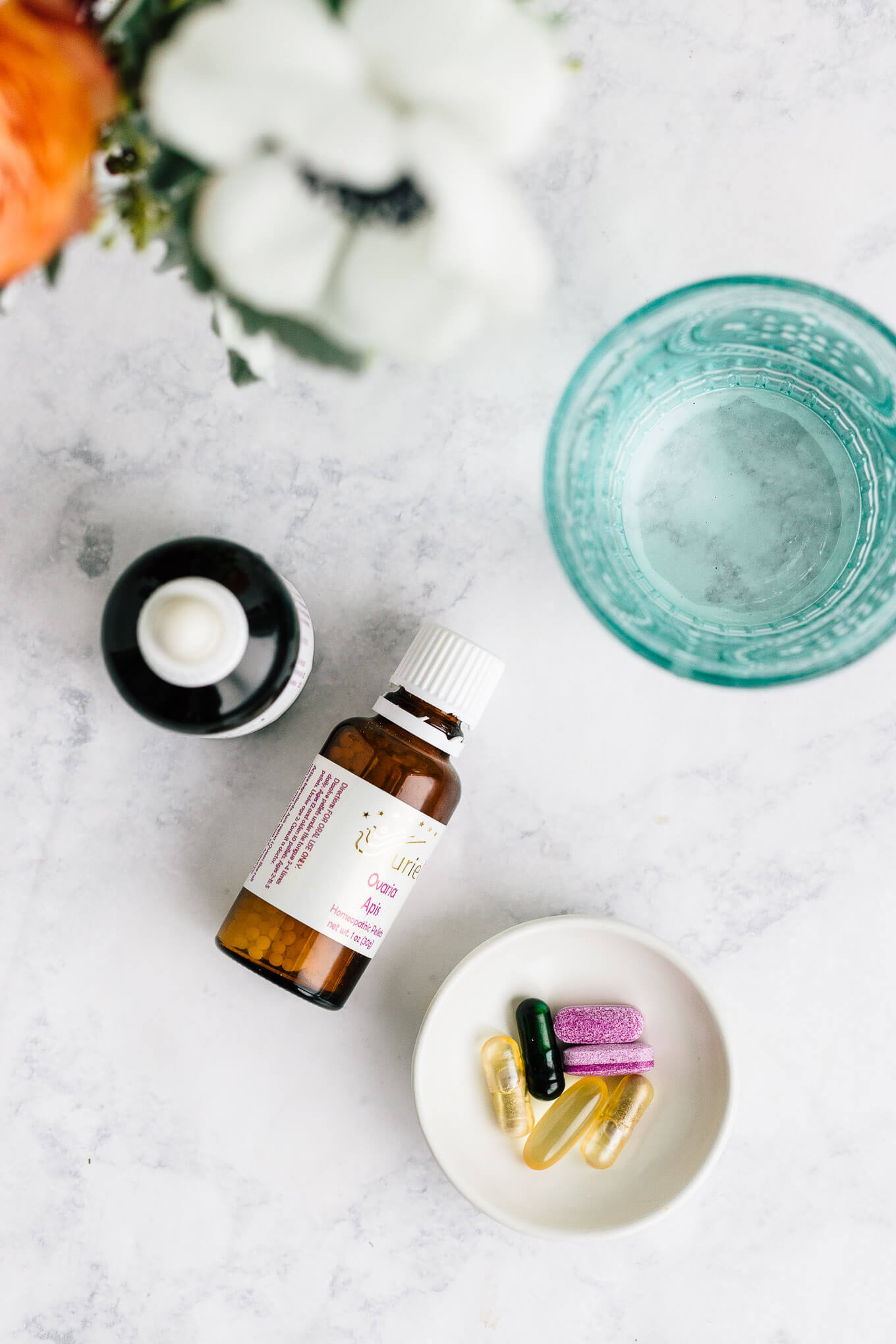
Tips for Trying To Conceive Post-Birth Control
Start nourishing your body before you’re ready
Don’t wait until you’re ready to start trying to conceive to nourish your body. Making shifts to restore your hormone balance post-birth control and boosting fertility prior to having kids can help improve your chances of getting pregnant quickly. If I would have waited to address my hormone issues once we knew we wanted to start trying, our journey would have looked very different.
Get your hormones tested
Test, don’t guess! Your endocrine system is extremely complex. Since everyone’s situation is unique, it’s important to get your hormones tested. Working with a professional can help you pinpoint the specific imbalances and how to properly address them. This is so important if you’re planning on supplementing with specific nutrients or herbs.
Advocate for yourself
You know your body! If you have a feeling something’s not right or you’re not comfortable with an answer you received, don’t settle! Get a second opinion, do your own research, and don’t let a health professional dismiss your concerns. You always have options. It may take time to find someone who will listen or who has the answers but a good doctor will get to the root cause of the issue and not use a band-aid approach with medication.
Optimize Nutrition & Correct deficiencies
This topic deserves an entire post (stay tuned!). In general, the way you eat has a huge impact on hormone balance and insulin regulation. This is essential for boosting fertility and recovering from post-birth control syndrome, since hormonal birth control depletes your body of a variety of key nutrients, including B vitamins, folate, zinc, selenium, and magnesium.
A whole-food, plant-based diet is a great place to start. This naturally cuts back on the amount of processed foods, unhealthy oils, and added sugars which can trigger inflammation and insulin resistance (both of which can trigger hormone imbalance). It’s also important to balance your blood sugar by not skipping meals and making sure each meal includes a mix of healthy fat, protein, and fiber-rich carbohydrates.
You may also need specific nutrients to correct the nutrient deficiency and altered gut bacteria. While there are general supplements most women can benefit from it’s best to get tested. This way you know you’re supplementing with the appropriate nutrients and properly addressing your unique needs.
Track your cycle
Many of us never get to really know our bodies and our cycle. Understanding your cycling and monitoring your hormone levels is essential for tracking ovulation and boosting your chances for conception. There are many ways to track your cycle but they require a strict routine or use your subjective opinion. This is why I use and recommend the Ava Fertility Tracker. All you have to do is wear the bracelet while you sleep and the work is done for you!
The Ava Bracelet tracks specific body parameters like body temperature, resting pulse rate, breathing rate, profusion, and heart rate variability ratio to measure stress. These factors can help accurately track hormone changes and ovulation throughout your monthly cycle. I honestly don’t think we would have gotten pregnant as quickly without using the Ava Bracelet. Even though it’s not meant for irregular cycles or conditions like PCOS (though they’re working on it!!), it worked for me and appeared accurate. I also found it empowering to know my numbers and see how my hormones were fluctuating throughout the month.
If you’re interested in committing to getting to know your body better or you’re trying to conceive, use the code “NOURISHED” for 20% off your Ava Bracelet!
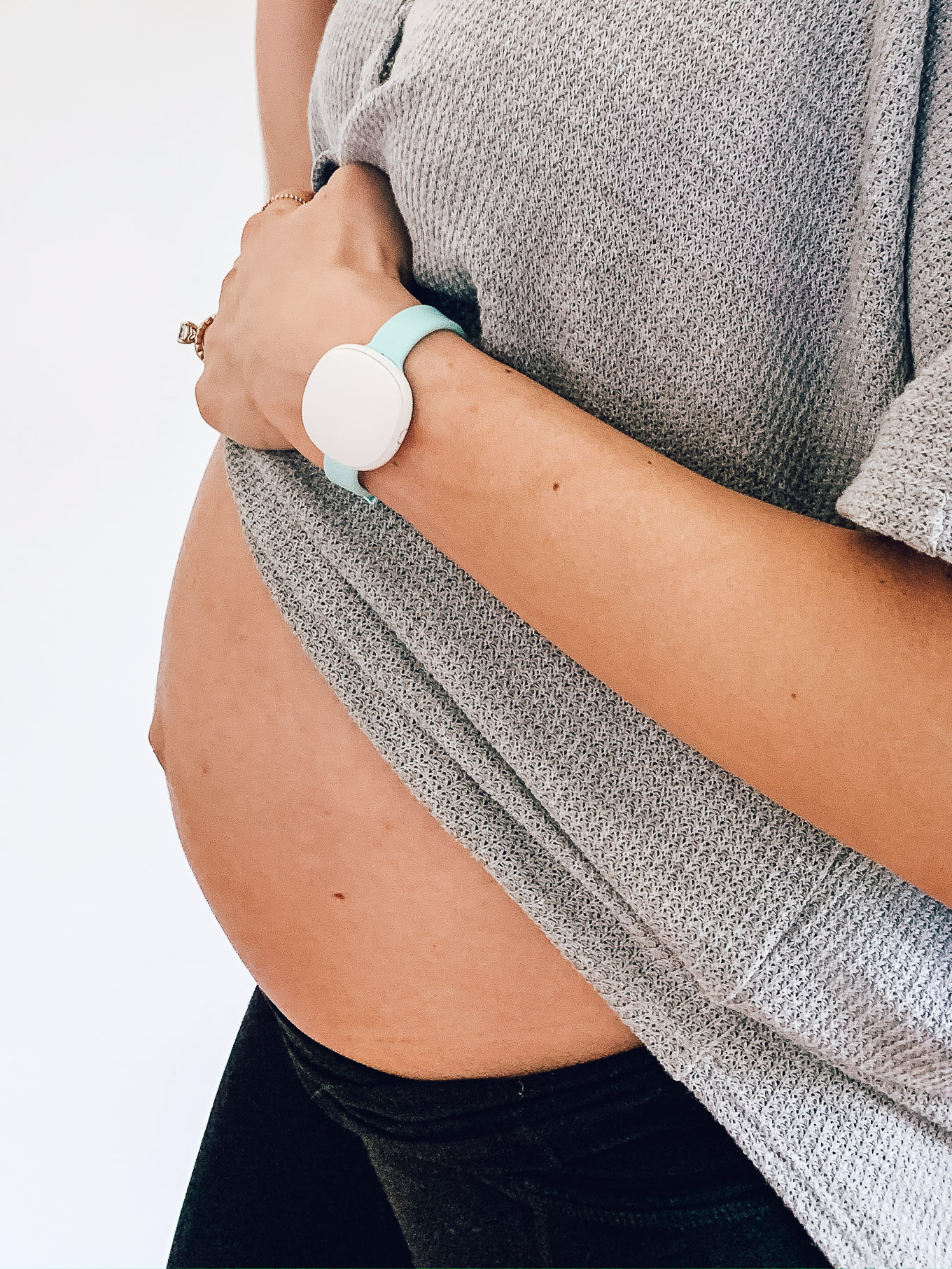
If you liked this post…
Stay tuned for more articles on women’s health, fertility, and how nutrition and lifestyle play a role in all of it. If you have any questions or have a certain topic you’d like me to cover, let me know in the comments or send me or contact me directly here!

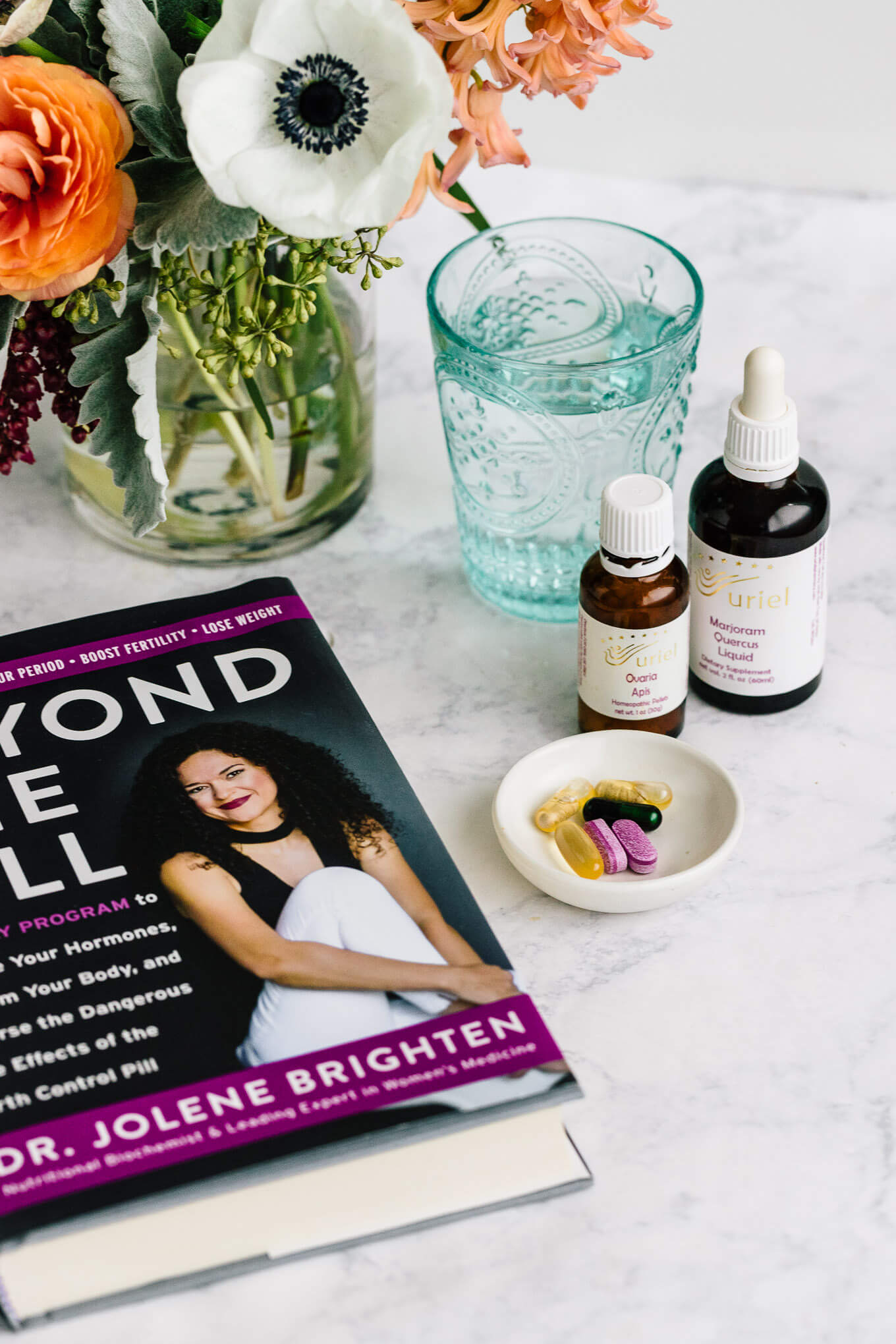


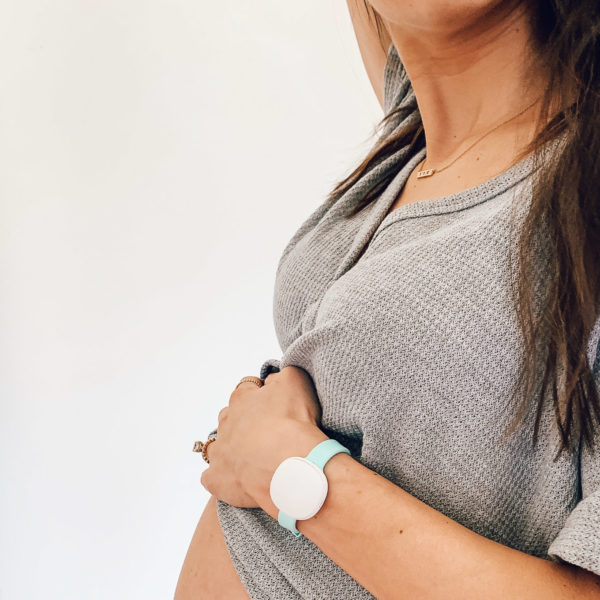
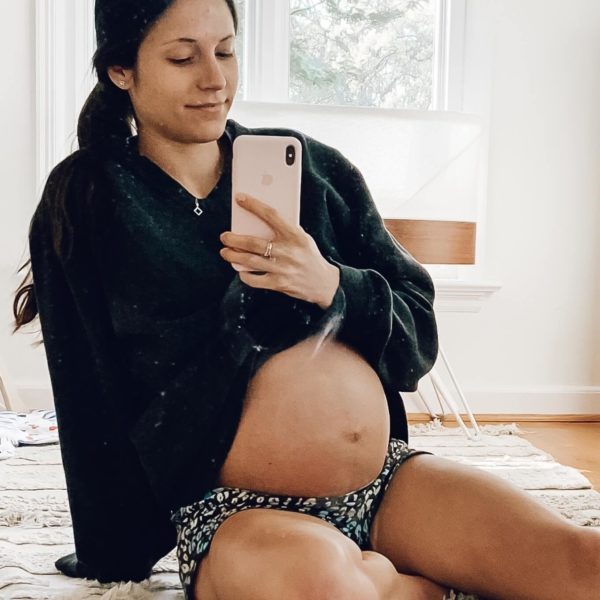
[…] is around a delayed or irregular period. If you’re experiencing unexplained weight gain or loss, having missing periods, or feeling fatigued or burnt out, a hormone imbalance may be to […]
I have a very similar story to yours. On the pill for 9 years, got off 6 years into my relationship. Getting married in two months and want to start a family soon after. I have been put through the ringer with post birth control syndrome. I have been suffering with extreme hormonal acne and it has been tough. This gives me some hope. Thank you for sharing this, I needed it today.
Thank you so much for posting this. I was also on the pill for 9 years and my story is pretty similar to yours, especially the attitudes about your health and reasons you had for going on the pill in your adolescence. I really needed to read this because I am having a difficult time since coming off the pill and you gave me so much hope. I am so happy for you that everything worked out for you and your family the way it has and I admire you for your courage because of everything you endured and for publishing it to the world. You don’t know how much I needed to read this today. If you had any doubts about posting or writing this, you did the right thing.